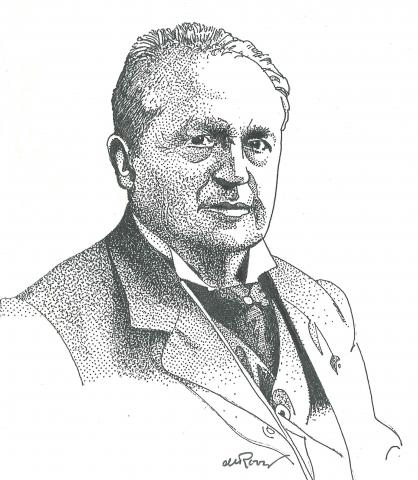A revised and updated version of
Abraham Kuyper: An Annotated Bibliography 1857-2010 by Tjitze Kuipers (2011)
You can buy a printed edition of this book on the site of the publisher.
1915
A revised edition of fifty-two asterisms (not fifty-three as Kuyper indicated) reprinted from De Standaard 44 (1915/1916), no. 13201, April 26, 1915–no. 13259, July 5, 1915. The series begins with number 8 and subsequently the numbering is incorrect throughout the volume. Kuyper was troubled by what he perceived as a breakdown and slackening of party discipline as well as by division among the leadership of the Anti-Revolutionary Party (ARP). In response, he offered this review of the ups and downs experienced by the party since its establishment. In the final short editorial (asterism), Kuyper again suggests (cf. the final short editorial included in 1915.04 and the preface to this publication) that he would be willing to step down from the chairmanship of the Central Committee of Anti-Revolutionary Electoral Associations (see 1878.02) and thereby to give up leadership of the ARP.
The revised edition of his collection was published in response to Th. Heemskerk’s Een woord over de genummerde driestarren van Dr. A. Kuyper (Rotterdam, [September] 1915). Kuyper called it an editio castigata (a purified edition) because, after reading Heemskerk’s brochure, Kuyper withdrew his claim that Heemskerk had purposely caused the De Meester cabinet to fall in 1907 out of personal ambition, without consulting the party or its leadership.
This edition also includes several new items: an untitled article from De Standaard, no. 13315, September 8, 1915, providing Kuyper’s first public reaction to Heemskerk’s brochure; three short editorials containing additional reflections on the matter from De Standaard, no. 13324, September 18, 1915; an asterism from De Standaard, no. 13336, October 2, 1915; a previously unpublished comment (on p. 97) about a collision with the Senate of the Vrije Universiteit about a dispute arising from one of his numbered series of asterisms (cf. De Standaard, no. 13338, October 5, 1915); and finally, two passages from 1913.07 purporting to demonstrate Kuyper’s loyalty to the Heemskerk cabinet (1907–1913).
Kuyper believed that in addition to serving as a response to Heemskerk’s brochure this publication would serve as a valid historical record and as a testimony to his desire to promote peace and harmony among the members of the Anti-Revolutionary Party.
The publication formed a rare exception to Kuyper’s practice of not introducing essential changes to his writings. According to the contract with the publisher (KA 315), Kuyper did not receive any payment for this publication, which was also most unusual.


